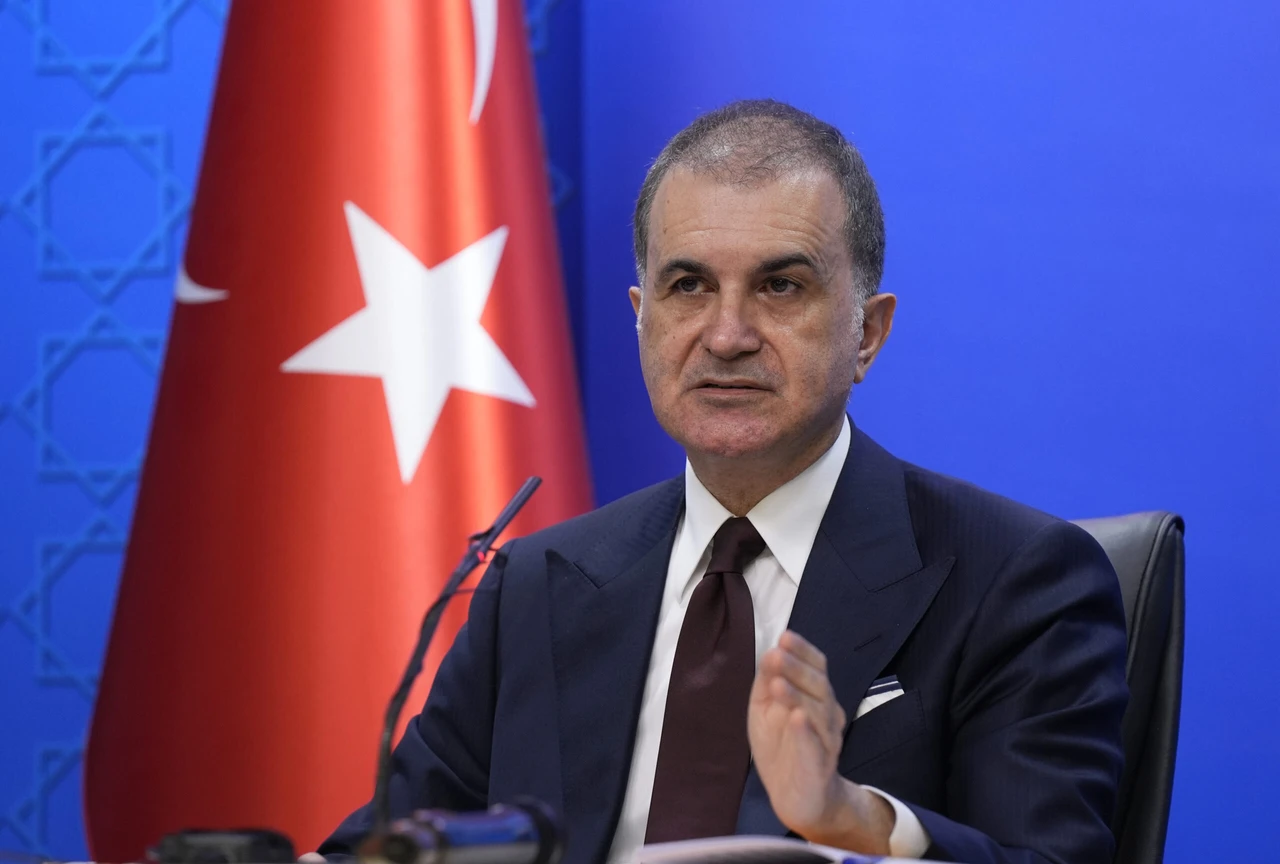AK Party Spokesperson slams Israeli Minister’s call for Synagogue at Al-Aqsa
 Türkiye's ruling AK Party spokesman Omer Celik in Ankara, Türkiye on August 12, 2024 (AA Photo)
Türkiye's ruling AK Party spokesman Omer Celik in Ankara, Türkiye on August 12, 2024 (AA Photo)
Omer Celik, spokesperson for Türkiye’s ruling AK Party, strongly condemned recent comments made by Israel’s far-right National Security Minister Itamar Ben-Gvir about building a synagogue at the Al-Aqsa Mosque in occupied East Jerusalem. Celik characterized the remarks as “an attack on all Muslims and humanity itself.”
Ben-Gvir’s comments, made during an interview with Israel’s Army Radio, included a claim that Jews have the right to pray at the Al-Aqsa Mosque, with the minister stating his desire to build a synagogue at the revered Islamic site. Celik did not mince words in his response, stating, “This is a vile and cursed statement that assaults our sacred values, our pride, and our red line.”
Al-Aqsa Mosque, holds profound religious significance for Muslims worldwide, being considered the third holiest site in Islam. The AK Party spokesman’s denunciation reflects broader outrage across the Muslim world over Ben-Gvir’s repeated calls for Jewish prayers at the mosque, which many fear could disrupt the long-standing status quo that governs the holy site.
Ben-Gvir’s comments have also sparked discord within Israel, with other political figures, such as Interior Minister Moshe Arbel from the Shas Party, warning that the extremist minister’s rhetoric risks jeopardizing Israel’s strategic alliances with Islamic nations.
Amid growing tensions, Celik reaffirmed Türkiye’s commitment to defending Al-Aqsa. “Mescid-i Aksa is our sacred trust. We will not allow any steps that threaten its sanctity,” he said, echoing the deep connection many in Türkiye feel toward the site.
Al-Aqsa Mosque has been a flashpoint for conflict in East Jerusalem, particularly since Israel’s occupation of the city in 1967. The site has been a frequent target of incursions by Israeli settlers under the protection of police forces, who fall under Ben-Gvir’s purview. These actions, along with Ben-Gvir’s statements, have provoked sharp rebukes from the international community, which continues to monitor developments in the increasingly volatile region.



